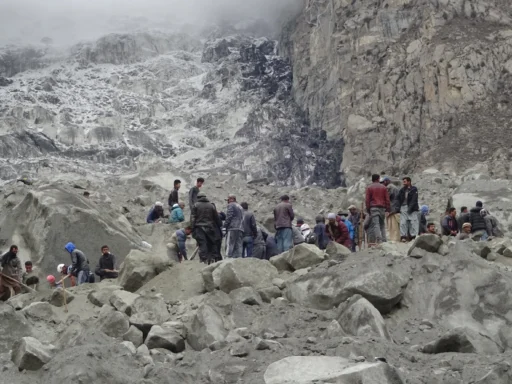Afghan Taliban Retaliate Against Pakistan :The strained relationship between Afghanistan and Pakistan has been marked by decades of political and military tension. The rise of the Afghan Taliban in 2021, after the withdrawal of U.S. forces, led to hopes that the situation would stabilize. However, the reality has been far from peaceful. The latest developments show that the Afghan Taliban retaliate against Pakistan after a series of airstrikes, highlighting the growing animosity between the two nations.
The roots of the conflict lie in long-standing territorial disputes and the complex web of militant groups operating across both sides of the Durand Line. Afghanistan has repeatedly accused Pakistan of interfering in its internal affairs, while Pakistan blames Afghanistan for providing safe havens to groups such as the Tehrik-i-Taliban Pakistan (TTP). This mutual distrust has led to an escalating cycle of violence, with both sides accusing each other of cross-border attacks.

Afghan Taliban’s Response
The recent retaliatory attacks were triggered by Pakistan’s airstrikes targeting alleged TTP hideouts inside Afghanistan. In response, the Afghan Taliban retaliate against Pakistan, attacking several points along the border. These strikes, though not officially confirmed, reportedly targeted military checkpoints and strategic infrastructure along the Durand Line, marking a dangerous escalation in the already fragile relationship between the two countries.
The decision of the Afghan Taliban to retaliate against Pakistan comes after months of rising tensions and accusations from both sides. While the Taliban government in Kabul has denied supporting the TTP, Pakistan insists that Afghanistan’s failure to take action against militant groups operating from its soil is a significant threat to Pakistan’s security.
The Retaliatory Strikes
In an official statement, the Afghan Ministry of Defense confirmed that the Taliban forces had launched attacks on multiple locations in Pakistan. Although the exact locations of the strikes remain unclear, sources suggest that military posts and infrastructure along the Durand Line were targeted. This was the first significant instance of the Afghan Taliban retaliating against Pakistan since the rise of the Taliban regime in Afghanistan.
Afghan Taliban Retaliate Against Pakistan
A Shift in Strategy
Historically, the Afghan Taliban has avoided direct military confrontations with Pakistan, focusing instead on consolidating power within Afghanistan. However, the retaliatory strikes mark a clear shift in strategy. The Taliban, in their bid to assert their power and retaliate against perceived foreign aggression, have now directly targeted Pakistan. This escalation in hostilities signals a dangerous turn in the already tense relationship between the two nations.
Afghan Taliban Retaliate Against Pakistan :As the situation develops, the international community watches closely. Many fear that if the Afghan Taliban continue to retaliate against Pakistan, it could lead to a full-scale military conflict that would destabilize the entire region. The repercussions of such a conflict would not only affect Afghanistan and Pakistan but could have wider implications for neighboring countries, including India, Iran, and China.

Pakistan’s Perspective
From Pakistan’s viewpoint, the Afghan Taliban’s retaliation is a direct result of their failure to curb militant groups within Afghanistan. Pakistan has long accused Afghanistan of providing safe havens to TTP militants, which have been responsible for a significant number of terrorist attacks inside Pakistan. In response to these growing threats, Pakistan has launched airstrikes in Afghanistan, targeting these militant hideouts.
Justification for Airstrikes
Pakistan justifies its airstrikes as a necessary measure to protect its sovereignty and national security. The Pakistani military argues that without taking action against the TTP in Afghanistan, the safety of Pakistani civilians and security forces would remain at risk. However, the Afghan Taliban view these airstrikes as an act of aggression and a violation of Afghanistan’s sovereignty. This has led to the current situation where the Afghan Taliban retaliate against Pakistan, targeting key locations along the border.
The ongoing conflict has also put Pakistan in a difficult position. While it seeks to eliminate the TTP threat, it also risks alienating the Taliban government in Afghanistan, which it had hoped would help in controlling these militant groups. The growing tensions between the two nations could ultimately undermine efforts to stabilize the region.
Regional Implications
The Afghan Taliban retaliate against Pakistan at a time when the entire South Asian region is grappling with instability. The ongoing conflict between the two countries has broader regional implications, especially for neighboring countries like India, Iran, and China. A full-scale conflict between Afghanistan and Pakistan would not only affect bilateral relations but could also disrupt trade routes and fuel instability in the wider region.
Challenges in Distinguishing Groups
One of the most significant challenges in this conflict is the difficulty in distinguishing between the Afghan Taliban and the TTP. While the Afghan Taliban deny any direct support for the TTP, Pakistan argues that there is a clear link between the two groups. Pakistan’s position is that the Taliban regime in Kabul provides both moral and logistical support to the TTP, despite official denials. This complicates the situation further, as Pakistan accuses Afghanistan of harboring militants that directly threaten its security.
The inability to resolve this issue has only fueled the cycle of retaliation, with the Afghan Taliban retaliating against Pakistan and Pakistan continuing its military operations in Afghanistan. Until a resolution is found, the prospects for peace in the region remain bleak.
Humanitarian Concerns
The conflict between the Afghan Taliban and Pakistan has severe humanitarian consequences, particularly for civilians living in the border areas. The retaliatory strikes and airstrikes have led to civilian casualties, displacement, and widespread suffering. Thousands of families have been forced to flee their homes, and basic services such as healthcare and education have been disrupted.
Civilian Impact
Local communities along the Durand Line have borne the brunt of the conflict. Families on both sides of the border have been caught in the crossfire, with no safe haven from the ongoing violence. Humanitarian organizations have expressed alarm at the deteriorating situation and have called for an immediate cessation of hostilities to allow aid to reach those in need.
The situation is particularly dire for displaced populations, who face harsh living conditions in refugee camps. The international community must step up its efforts to provide humanitarian assistance and push for a peaceful resolution to the conflict.

The Role of the International Community
The Afghan Taliban retaliate against Pakistan at a time when the international community is already concerned about the stability of Afghanistan. While countries like the United States and NATO have largely withdrawn from the region, their interests in ensuring regional stability remain.
China’s Mediation Offer
China, as a key player in the region, has expressed concern over the escalating tensions. With significant investments in both Afghanistan and Pakistan, China has a vested interest in maintaining peace and stability in the region. Beijing has offered to mediate between the two countries, hoping to prevent further escalation and ensure that its Belt and Road Initiative projects in the region are not disrupted.
However, the willingness of both Afghanistan and Pakistan to accept China’s mediation remains uncertain. The two countries’ entrenched positions make it difficult to find common ground, and international mediation efforts have thus far been unsuccessful.
Future Prospects
The future of Afghanistan and Pakistan’s relationship is uncertain. The retaliatory strikes by the Afghan Taliban against Pakistan signal a dangerous escalation, but there is still hope for a peaceful resolution. Both countries must prioritize diplomacy and dialogue over military confrontation to avoid a full-scale war.
Recommendations for Resolution
Pakistan must find a way to address the TTP threat without further alienating the Afghan Taliban. At the same time, Afghanistan must take concrete steps to address the concerns raised by Pakistan regarding militant groups operating from its territory. Without cooperation and dialogue, the conflict will only continue to escalate.
Source : Business Recorder




